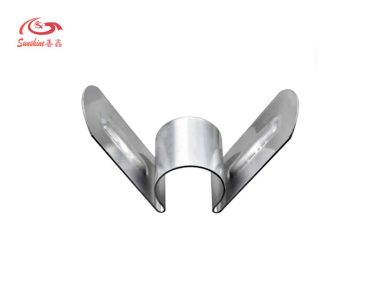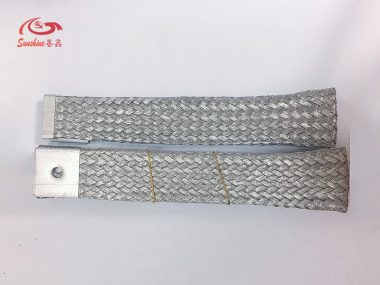What is sg type sic heating elements?
The spiral sg type sic heating elements are made of special high-density reaction-bonded silicon carbide.

Advantage
A spiral slot in the hot zone reduces the cross sectional area. This provides the electrical resistance ratio to make the ends cool and the hot zone hot.
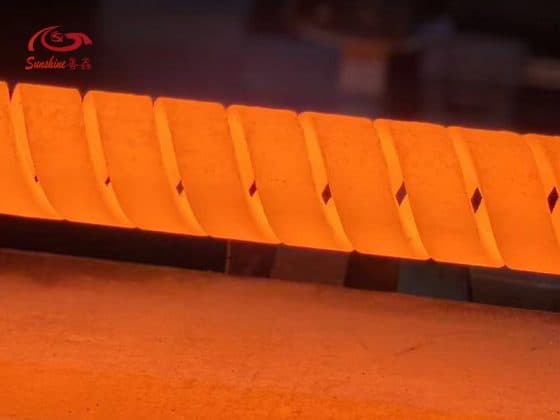
Special cold ends may be welded to further enhance the resistance ratio.
| Production process | Made into blank, silicided under high temperature and re-crystallized. |
| Weight | According to size |
| Also called | Sic resistance / sic heater / silicon carbide heater rod |
| Flexure strength | 98MPa |
| Porosity | 5% |
| Heat conductivity (hot end) | 16-21W/m+℃ at 1000℃ |
| Specific heat | 1.0 kj/kg+℃ at 25℃-1300℃ |
| Specific resistance (hot end) | 0.016Ω cm at 1000℃ |
| The coefficient of thermal expansion | 4.5×10-6 |
Connection method of sg type sic heating elements
To provide a low resistance contact surface the extremities are metallized with aluminum.
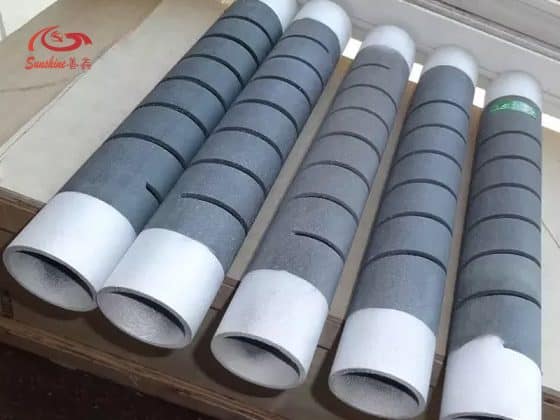
The electrical connections are made with flat aluminum braids and spring clamps.
Video
Model number and reference data
Design suggestion of SG type sic heating elements
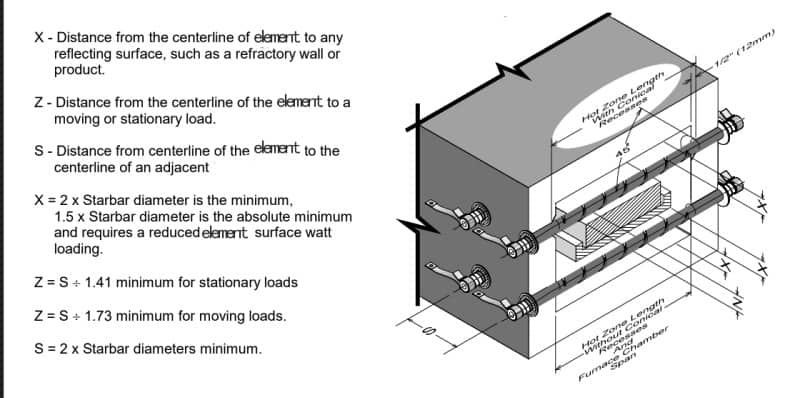
X-Distance from the centerline of element to any reflecting surface, such as a refractory wall or product.
Z-Distance from the centerline of the element to a moving or stationary load.
S-Distance from centerline of the elament to the centerline of an adjacent
X=2×Starbar diameter is the minimum,
1.5×Starbar diameter is the absolute minimum and requires a reduced elament surface watt loading.
Z=S÷1.41 minimum for stationary loads
Z=S÷1.73minimum for moving loads.
S=2×Starbar diameters minimum.
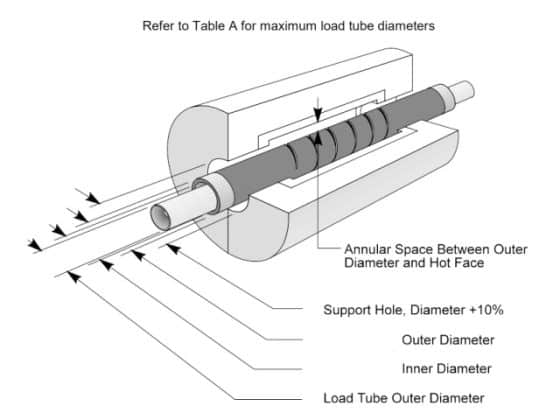
The advantages of SG type type SiC heating elements
SG type type SiC heating elements have high-density low-porosity element. They are able to survive severe environments.
The high density prevents the internal lattice structure from being oxidized.
This type element has an extremely slow aging characteristic.
When you inquiry, Please inform us
- Outer diameter (OD)
- Length of Hot zone (HZ)
- Cold end length(CZ)
- Length of Overall (OL)
- Vottage and Wattage
- Quantity






